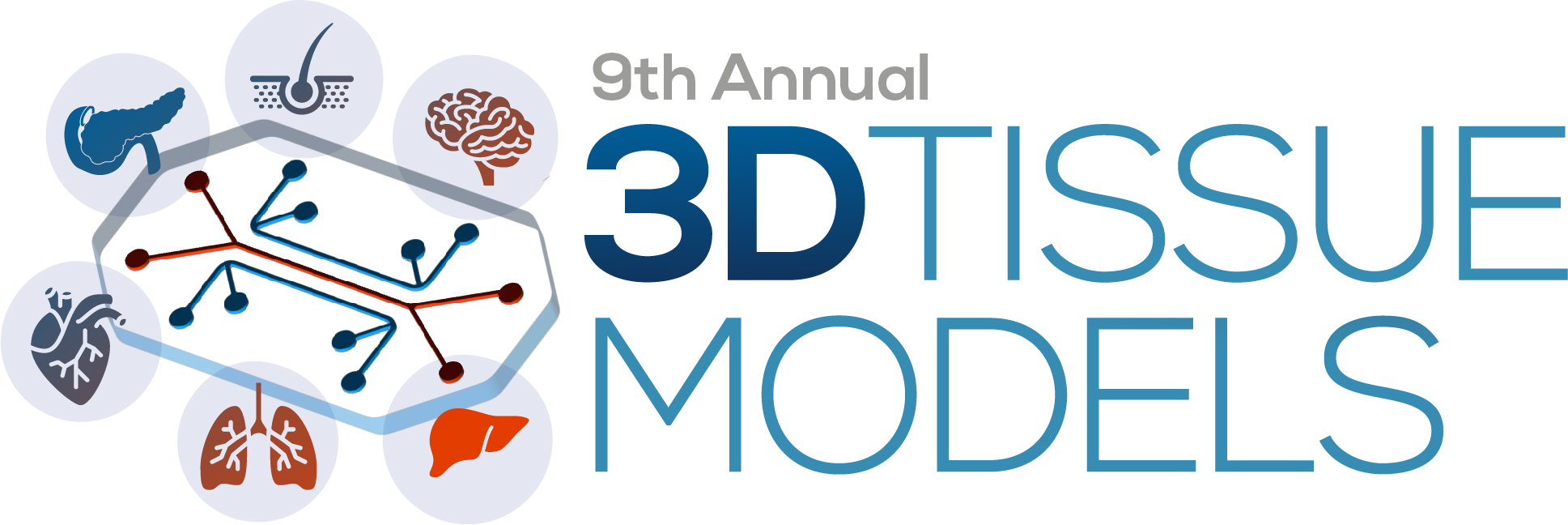Conference Day Two
8:50 am Chair’s Opening Remarks
Uncovering Model Complexity to Support Future Drug Development Workflows
9:00 am Fireside chat: How Complex Is Complex? Uncovering Unique Perspectives on Model Complexity
Synopsis
- Exploring different perspectives across the industry on the optimal level of complexity in 3D tissue models for drug discovery
- Delving into how different research objectives and disease contexts influence the choice of model complexity, considering organoids, spheroids, microphysiological systems, and organ-on-a-chip
- Exploring potential innovations and technologies that could influence the evolving landscape of model complexity, with an emphasis on fostering collaboration and knowledge exchange
9:45 am Session Reserved for BennuBio
9:55 am Modeling Neurological Disorders Using Patient-Derived Human Brain Organoids
Synopsis
- CNS drug discovery needs a paradigm shift. Patient-derived brain organoids can revolutionize CNS drug discovery
- Patient-derived Rett syndrome and CDKL5 deficiency disorder cortical brain organoids exhibit aberrant functional disease phenotypes amenable to HTS. Phenotypic screening identified clinical candidates for Rett syndrome advancing to a Phase 2 clinical trial funded by the DoD
- Midbrain organoids from familial Parkinson’s disease patients with pathogenic mutations in the GBA1 gene exhibit clinical biomarkers amenable to HTS
10:25 am Morning Break & Networking Coffee
Harnessing Organoids to Organ-On-A-Chip to Better Understand the Blood-Brain Barrier & Other Neurological Disorders
11:25 am Harnessing Complex in vitro models to Uncover Neuromuscular Disorders
Synopsis
- Showcasing the utilization of neuromuscular models to assess a spectrum of disorders potentially including mitochondrial diseases, or muscular dystrophy, or immune related responses
- Evaluating the efficacy of candidates within the neuromuscular context through these chosen models
- Discussing how the efficacy assessments in neuromuscular models contribute to the optimization of candidate treatments, paving the way for enhanced interventions in the field
11:55 am Blood-Brain Barrier-on-a-Chip for brain disease modeling & drug testing
Synopsis
- Employing in vitro compartmentalized microfluidic devices to study neurodegenerative diseases and evaluate their impact on the blood-brain barrier
- Harnessing Organ-on-Chip technology as a testing platform to explore and validate new therapeutic targets for the treatment of neurodegenerative diseases
- Exploring the future potential of this model in drug development
12:25 pm Harnessing Brain Organoids to Advance Neurodegenerative Drug Studies
Synopsis
- Exploring the utilization of validated complex in vitro models to gain precise insights into the blood-brain barrier
- Discussing methodologies for validation, ensuring the fidelity and relevance of these models in supporting drug discovery efforts targeting the CNS
- Showcasing the translational potential of findings from the blood-brain barrier model to neurodegenerative medicine development
12:55 pm Lunch Break
Moving To Newer Model Types to Improve Model Research & Drug Development
1:55 pm Fireside chat: What Does the Future of 3D Tissue Modelling Look Like to You?
Synopsis
- Discussing the exciting model developments that have recently gained traction
- Uncovering the use of models for personalized medicine or personalized patient treatment regimes
- Addressing the potential use of artificial intelligence to empower current workflows
2:35 pm Leveraging 3D Transwell Models to Uncover Deep Insights into Respiratory Antiviral Therapeutics
Synopsis
- Highlighting the innovative features of the model, emphasizing its significance in providing valuable insights into the efficacy of antiviral interventions
- Exploring the capabilities of the 3D transwell model in visualizing virus interactions within and on tissue
- Discussing how findings from the model can contribute to the development of effective antiviral strategies, bridging the gap between benchtop research and clinical applications
